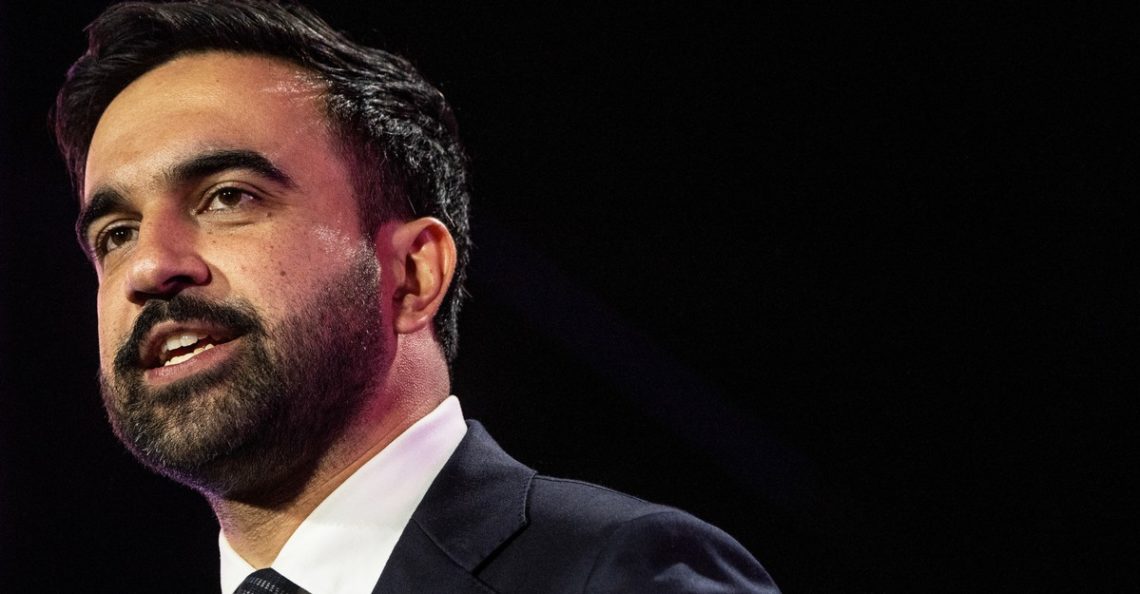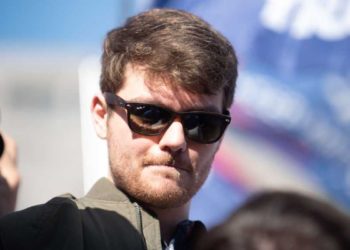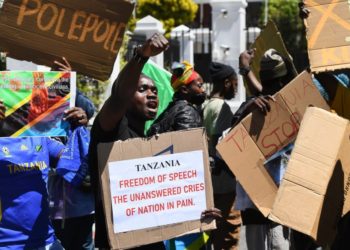Zohran Mamdani’s grin was as magnetic as ever, his rhetoric soaring, as he began his victory speech Tuesday night by summoning the spirit of an American socialist who died 99 years ago. “The sun may have set over our city this evening, but as Eugene Debs once said, ‘I can see the dawn of a better day for humanity,’” the mayor-elect of New York told his audience in Brooklyn.
Mamdani’s election was indeed consequential. A democratic socialist, he is among New York’s youngest mayors ever, and its first Muslim and South Asian leader. His margin—he claimed 50.4 percent of the vote—fell short of grand. But this election saw remarkable turnout. Mamdani was the first New York mayoral candidate to gain more than 1 million votes since 1969. Andrew Cuomo, even in defeat, received more votes than any victorious mayor since 1993.
Yet for all Mamdani’s success in organizing and inspiring volunteers and voters, he will govern in a perilous landscape, and he will need to prove his bona fides quickly.
Mamdani’s campaign was marked by his audacious, sometimes improbable proposals. He and his supporters often bridled at those who shook their heads and said that the numbers behind those proposals did not scratch out. But on Tuesday he doubled down. “This will be an age where New Yorkers expect from their leaders a bold vision of what we will achieve,” he said, “rather than a list of excuses.” He spoke again of freezing rents for rent-stabilized apartments, making buses fast and free, and providing universal child care. Notably, he left out his campaign promises to deliver cheap, city-run grocery stores (a City Department of Supermarket Affairs?) and more low-income housing than the city appears to have money for.
Watching the speech on TV, I felt the yearning—his and that of the crowd—for transformational change but whispered to myself: Vaya con Dios, Zohran.
Mamdani’s challenges are steep, particularly for a leader who has never run anything bigger than a five-person assemblyman’s office. Much as he might enjoy lashing out at the city’s billionaires—“The billionaire class has sought to convince those making $30 an hour that their enemies are those earning $20 an hour,” he said in his victory speech—this cohort controls businesses with tens of thousands of employees and fills city coffers with its taxes. If even a handful of extremely wealthy individuals leave, that means a lot less revenue for Mamdani’s wish list. Recreationally warring with them is ill-advised. Many New Yorkers in the city’s large and influential Jewish community are also deeply suspicious of Mamdani because of his opposition to Israel and Zionism, and he can’t afford to alienate them any more than he already has.
At the same time, managing his political base could prove tricky. Mamdani is a proud member of the Democratic Socialists of America, a formidable and tetchy group that adores its champions, even as it punishes those who deviate. At the DSA’s national convention two years ago, Mamdani explained how the socialist legislators in the New York statehouse survived by observing an allegiance to the DSA that distinguished them from less ideologically disciplined Democrats. Without that commitment to DSA orthodoxy, he said, “You will start to rationalize that which you initially rebelled against.”
Those, however, were the words of a back-bench state assemblyman. As mayor, Mamdani will inevitably need to compromise and make deals, and the DSA faithful in New York are not infinitely patient. Only a few years ago, they canceled a talk by the noted Black socialist scholar Adolph Reed because his planned topic—he intended to argue that the left’s emphasis on the disproportionate impact of COVID on Black people undermined its own agenda—caused a backlash among some DSA members. Last year, the national DSA withdrew its endorsement of Representative Alexandria Ocasio-Cortez, by far its best-known standard-bearer. Among her heresies was that she had affirmed Israel’s right to exist and signed a press release supporting anti-missile systems for the country to defend its civilian population. (The New York City chapter of DSA endorsed Ocasio-Cortez.)
Another problem is the ever vengeful Donald Trump, who has loosed the National Guard and masked ICE agents on one Democratic-run city after another (or tried to) and who has his eyes on New York, his hometown. Mamdani in his victory speech took declamatory swings at the president. “Donald Trump, since I know you’re watching, I have four words for you: Turn the volume up.” His words were brave and chesty. But Trump can make New York City bleed in many dozens of ways. For Mamdani, charting a path through the chaos might require tempering confrontation with compromise.
How can he achieve the transformational change he’s promised while managing all this? His best bet might be cutting the deals needed to get one quick, early win, to demonstrate that his aspirations can yield concrete achievement. Perhaps his focus should be the proposal for free municipal buses. This is no small task. The city’s buses carry an average of 1.4 million passengers per weekday and cost $700 million a year. The state-run MTA oversees buses and subways in New York City, which means that Mamdani will need to persuade the centrist Democratic governor, Kathy Hochul, to help him, and she has resisted raising taxes on the rich.
Hochul and Mamdani have a nascent political relationship born of her endorsement of him after he won the Democratic primary this summer. (Senator Chuck Schumer, by contrast, never endorsed anyone in the mayoral race.) Some of Mamdani’s followers drowned out the governor with cries of “Tax the rich!” when she attended one of his rallies last week. But Mamdani held her hand aloft that night. Now he has something to trade for her help. Hochul is expected to face an opponent from the left in next year’s Democratic primary, and Mamdani’s praise—or even his artful neutrality—could prove invaluable to her. Might he trade that chip in seeking Hochul’s acceptance of new taxes to underwrite free buses?
Alternatively, Mamdani could focus on expanding day care. In 2014, Mayor Bill de Blasio opened his first term by persuading then-Governor Cuomo to fund universal prekindergarten. Mamdani would like to cover every New York child from age six weeks to 5 years old, while boosting child-care-worker wages to match those of public-school teachers. This would be, he says, transformative. It would also be extremely expensive and require the state to approve a tax increase. Again, in the hands of a nimble mayor, perhaps there’s a compromise to be made.
Yet in remarks since his victory on Tuesday, Mamdani has sounded not-so-conciliatory, and has revealed hints of a serrated edge. In his Election Night speech, he dismissed his vanquished opponent Cuomo in a sentence: “Let tonight be the final time I utter his name.”
Mamdani could do worse than to pay attention to another combative politician, Senator Bernie Sanders, who played the role of mentor throughout Mamdani’s campaign. Many years ago, I covered Sanders when he was mayor of Burlington, Vermont. His office was dominated by a large black-and-white photo of Eugene Debs. And he was a battler, befriending Sandinistas and denouncing Ronald Reagan. But Sanders also balanced budgets and championed affordable housing, and when the snow fell, he went out and rode the city plows and joked with sanitation workers and police officers. Perhaps that was not as emotionally satisfying as dueling with a mercurial and dangerous president might be. But for the working people of Burlington, the city basically worked, and Sanders reaped the rewards.
Mamdani might keep that in mind in the months to come.
The post Zohran Mamdani Is About to Confront Reality appeared first on The Atlantic.




